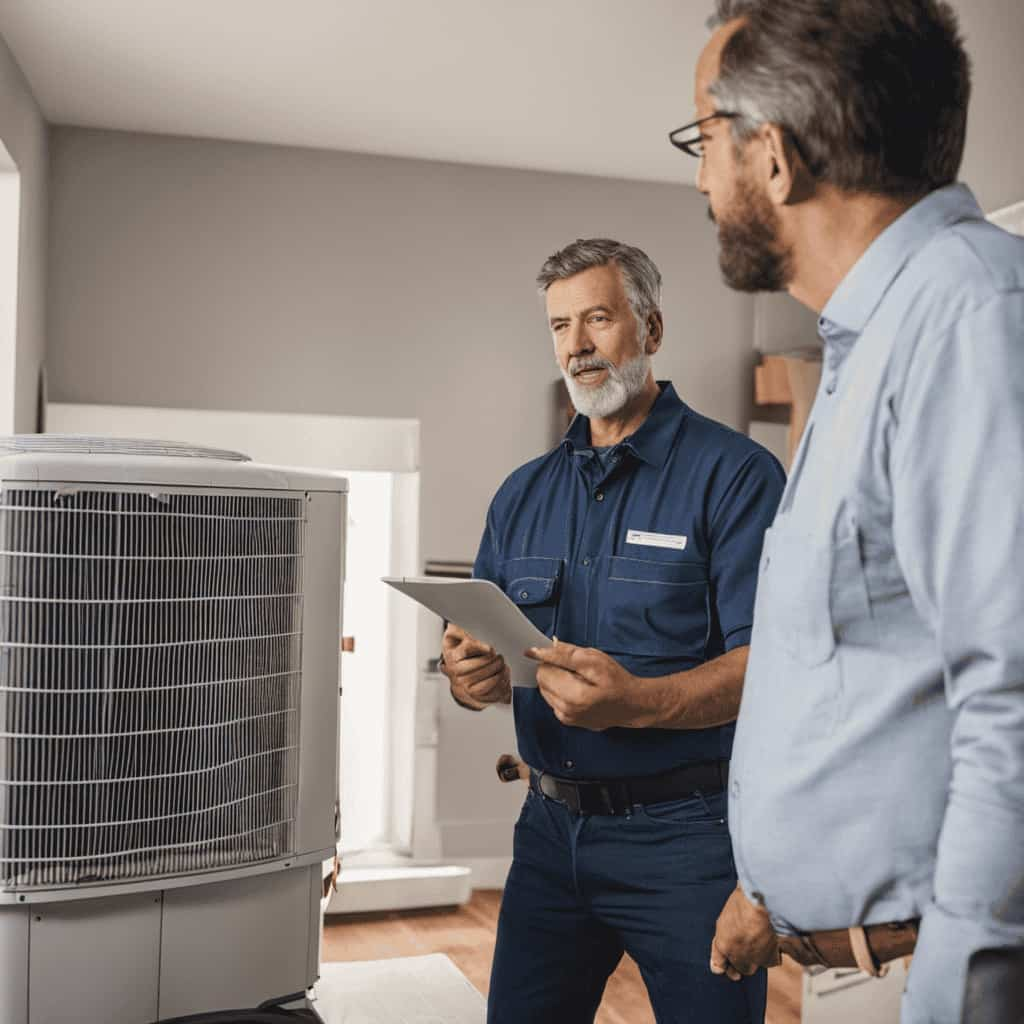We are revolutionizing the level of comfort you experience when using green energy heat pumps.
Did you know that heat pumps can reduce your energy consumption by up to 50% compared to traditional heating systems? These innovative devices use the ambient air or ground as a heat source, making them highly efficient and environmentally friendly.
In this article, we’ll explore the advantages of renewable energy heat pumps, delve into the technology behind them, and provide tips on choosing the right one for your home.
Get ready to transform your comfort and reduce your carbon footprint!
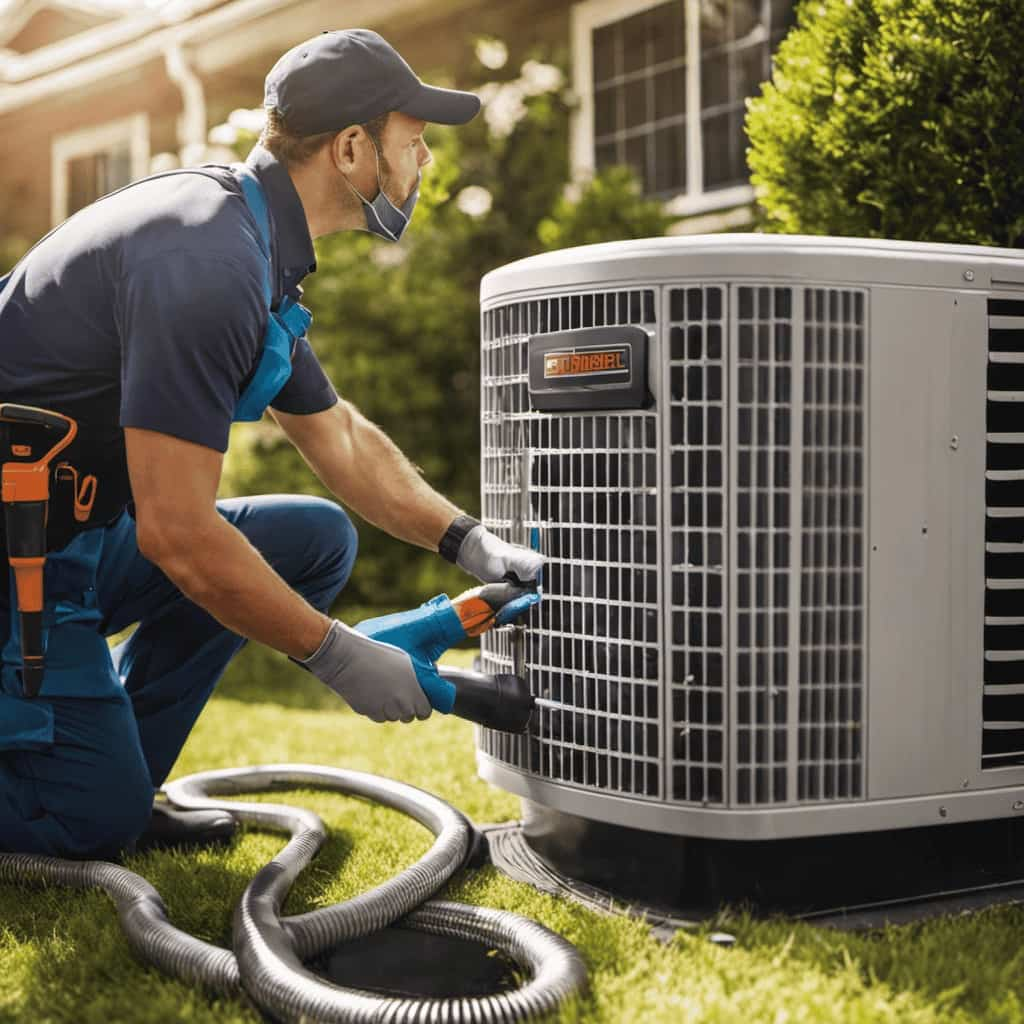
Key Takeaways
- Renewable energy heat pumps reduce energy consumption by up to 50% compared to traditional heating systems.
- They utilize renewable energy sources like the sun, air, or ground, reducing dependence on fossil fuels and harmful emissions.
- Heat pumps are highly efficient, converting a small amount of electricity into a larger amount of heat or cool air.
- Choosing the right heat pump involves considering energy efficiency, sizing, upfront costs, and long-term savings to maximize efficiency and comfort.
The Advantages of Renewable Energy Heat Pumps
We’re going to explore the benefits of renewable energy heat pumps for revolutionizing comfort in our homes.
Renewable energy heat pumps offer numerous advantages that contribute to both our comfort and our savings. First and foremost, these heat pumps utilize renewable energy sources, such as the sun, air, or ground, to provide heating and cooling. By harnessing these sustainable resources, we reduce our dependence on traditional fossil fuels, minimizing harmful emissions and combating climate change.
Additionally, renewable energy heat pumps are highly efficient, converting a small amount of electricity into a larger amount of heat or cool air. This energy efficiency translates into significant savings on our energy bills, allowing us to enjoy a comfortable home while also reducing our carbon footprint.
Understanding the Technology Behind Heat Pumps
How do heat pumps work, and what technology is used to make them function?

Heat pumps operate by utilizing a refrigeration cycle to transfer heat from one space to another. They consist of several key components that work together to achieve this process.
The main components of a heat pump include an evaporator, a compressor, a condenser, and an expansion valve. The evaporator absorbs heat from the surrounding environment, which causes the refrigerant to evaporate into a gas.
The compressor then increases the pressure and temperature of the gas, forcing it into the condenser. In the condenser, the heat is released into the desired space, and the refrigerant condenses back into a liquid.
Finally, the expansion valve reduces the pressure of the liquid refrigerant, allowing it to return to the evaporator to repeat the cycle.
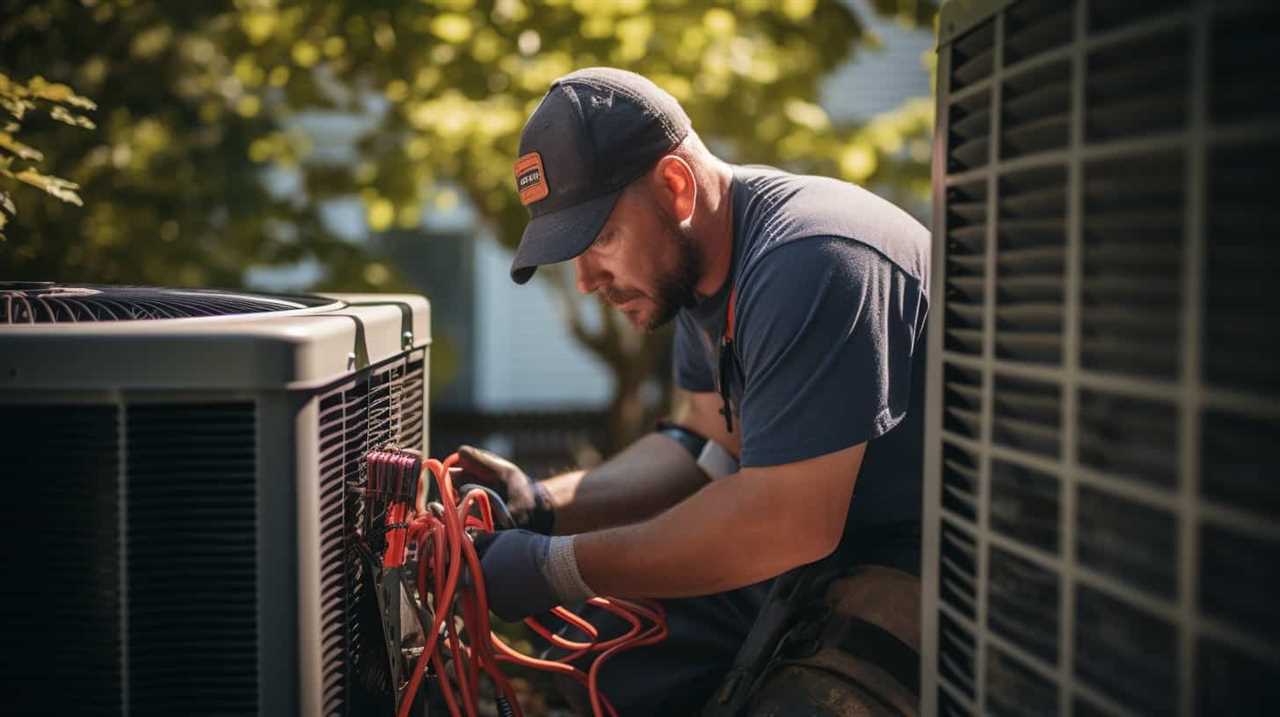
Understanding the technology behind heat pumps is crucial when choosing the right renewable energy heat pump for your home.
Choosing the Right Renewable Energy Heat Pump for Your Home
Our main goal in choosing the right renewable energy heat pump for our home is to maximize efficiency and comfort. When considering the best option for home installation, it’s crucial to take into account the cost comparison. Here are three key factors to consider:
-
Energy Efficiency: Look for a heat pump with a high Seasonal Energy Efficiency Ratio (SEER) and Heating Seasonal Performance Factor (HSPF) ratings. These ratings indicate the unit’s efficiency in cooling and heating respectively.
-
Size and Capacity: Ensure the heat pump is appropriately sized for your home’s heating and cooling demands. An undersized unit will struggle to maintain comfortable temperatures, while an oversized one may cycle on and off frequently, wasting energy.

-
Installation Costs: Compare the upfront costs of different heat pump models, including the unit itself and any additional installation requirements. Consider the long-term savings in energy bills when evaluating the overall cost-effectiveness.
Key Considerations for Heat Pump Installation
When it comes to heat pump installation, there are several key considerations to keep in mind.
First and foremost, efficiency and savings are important factors to consider. Heat pumps can provide significant energy savings compared to traditional heating systems, so it’s crucial to choose a model that’s highly efficient.
Additionally, the environmental impact of the heat pump should be taken into account, as renewable energy heat pumps contribute to reducing greenhouse gas emissions.

Efficiency and Savings
We can maximize efficiency and savings by carefully considering key factors when installing heat pumps.
When it comes to energy consumption, heat pumps are significantly more efficient than traditional heating systems. They utilize renewable energy sources, such as the air, ground, or water, to transfer heat into or out of a building, reducing the need for fossil fuels. This not only reduces carbon emissions but also lowers energy costs in the long run.
Additionally, heat pumps offer cost effectiveness through their ability to provide both heating and cooling functions, eliminating the need for separate systems. By investing in a heat pump, homeowners can enjoy year-round comfort while saving money on their energy bills.
Environmental Impact
Installing heat pumps requires careful consideration of their environmental impact. As we seek renewable energy alternatives and ways to reduce our carbon footprint, it’s crucial to understand the environmental implications of heat pump installations.
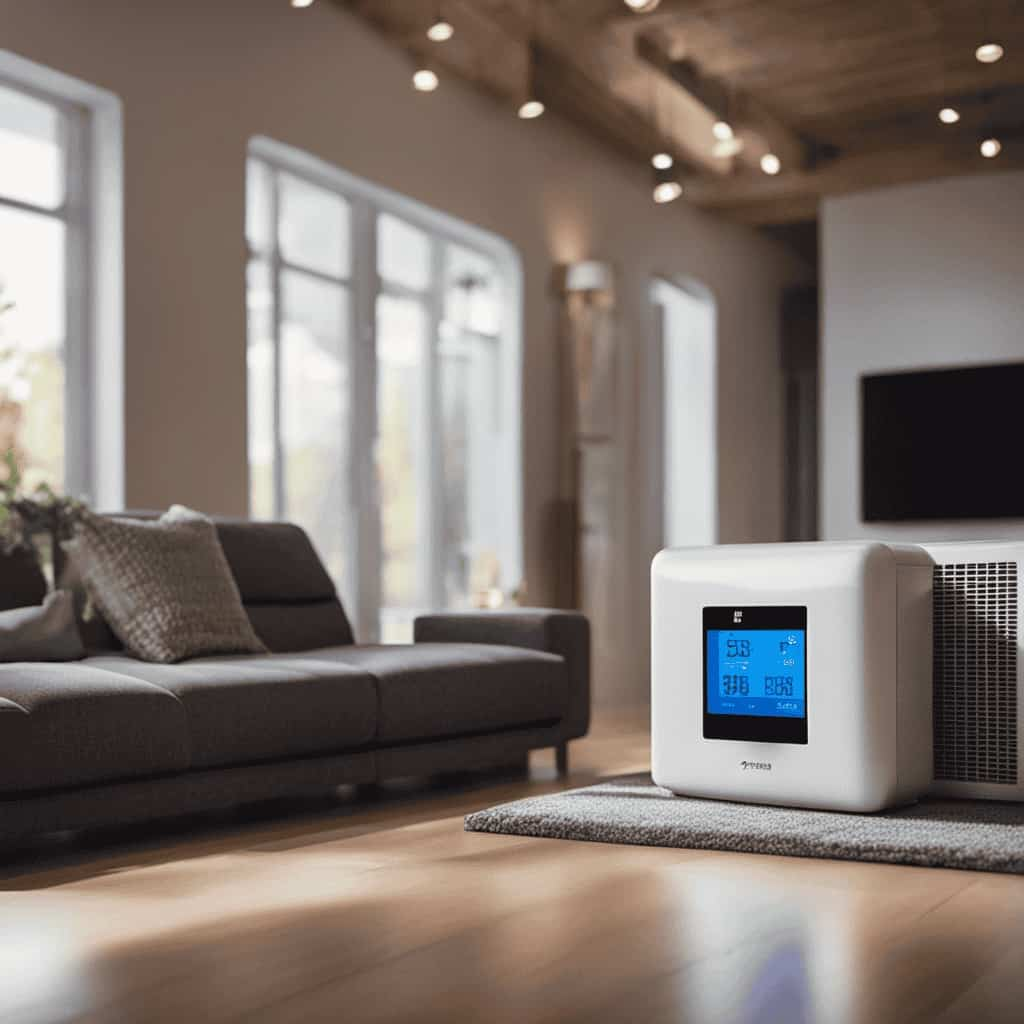
Heat pumps are highly efficient and emit lower greenhouse gas emissions compared to traditional heating systems. By utilizing renewable energy sources such as air, ground, or water, heat pumps can significantly reduce reliance on fossil fuels. This not only helps to combat climate change but also promotes sustainability.
Additionally, heat pumps can contribute to improved air quality by eliminating the need for combustion processes. These environmental benefits make heat pumps a valuable option for those looking to make a positive impact on the planet.
Transitioning from environmental impact, let’s now delve into the importance of proper sizing and location for heat pump installations.
Proper Sizing and Location
Choosing the appropriate size and location is crucial for a successful heat pump installation. Proper sizing ensures that the heat pump can effectively meet the heating and cooling demands of the space, while the right location maximizes its efficiency and performance.

Here are some key considerations for proper sizing and installation techniques:
-
Accurate assessment: Conduct a thorough evaluation of the building’s heating and cooling needs to determine the correct size of the heat pump.
-
Site analysis: Evaluate the available space, considering factors such as airflow, noise levels, and access for maintenance.
-
Climate considerations: Take into account the local climate and weather patterns to optimize the heat pump’s efficiency.
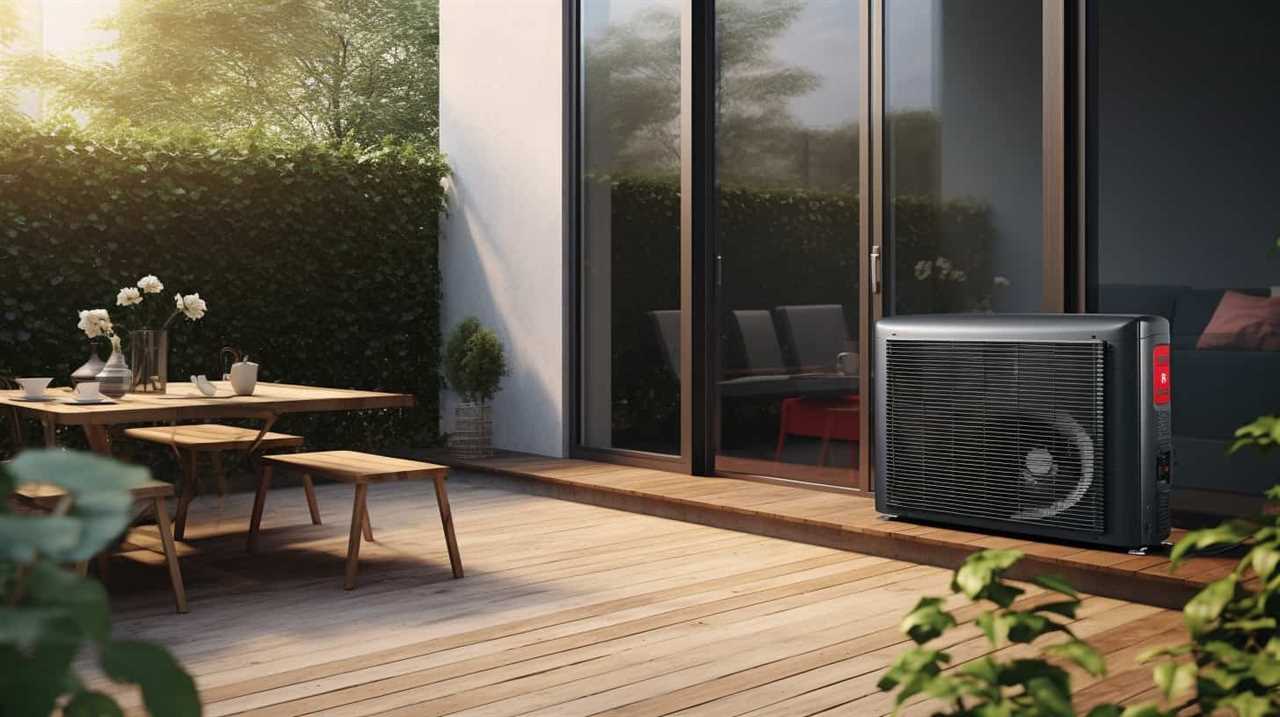
By carefully considering these factors during the installation process, you can ensure that the heat pump operates at its peak performance, delivering optimal comfort and energy savings.
Proper sizing and location are essential steps in revolutionizing comfort with renewable energy heat pumps.
Maintenance Tips for Renewable Energy Heat Pumps
To ensure optimal performance and longevity of renewable energy heat pumps, it’s important to regularly maintain and inspect the system. By following these maintenance tips, you can keep your heat pump running efficiently and effectively.
First and foremost, it’s crucial to adhere to safety precautions when performing any maintenance on your heat pump. Always turn off the power before inspecting or cleaning any components. Additionally, make sure to wear appropriate protective gear to prevent any injuries.

A troubleshooting guide can be a valuable resource when it comes to identifying and resolving common issues with your heat pump. Familiarize yourself with the guide provided by the manufacturer, as it can help you identify and address any problems that may arise.
Regularly cleaning and replacing air filters is essential for the proper functioning of your heat pump. Clogged or dirty filters can restrict airflow and reduce efficiency. It’s recommended to clean or replace the filters every one to three months, depending on usage.
In addition to filters, it’s important to inspect and clean the outdoor unit regularly. Remove any debris, such as leaves or twigs, that may have accumulated around the unit. This will ensure proper airflow and prevent any potential damage to the system.
Lastly, scheduling annual professional maintenance is highly recommended. A qualified technician can thoroughly inspect and service your heat pump, identifying any potential issues and ensuring its optimal performance.
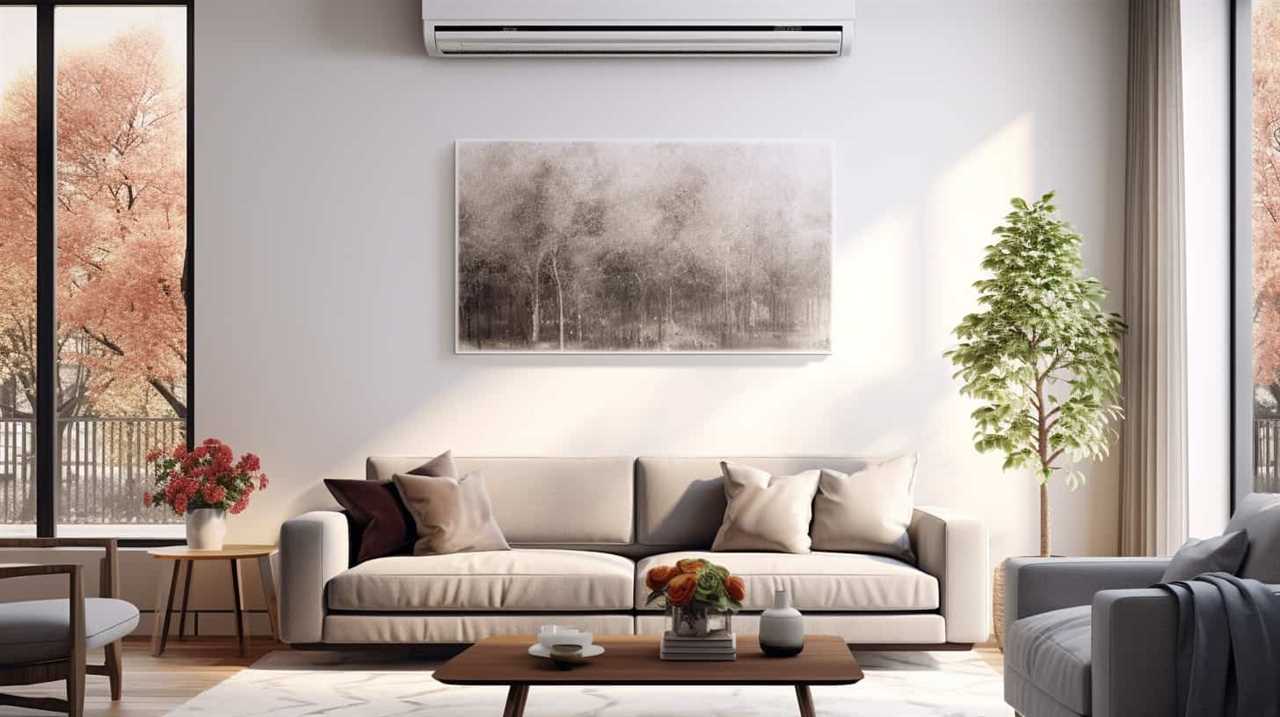
The Future of Renewable Energy Heat Pumps
As we look ahead to the future of renewable energy heat pumps, there are three key points to consider.
First, the efficiency of heat pumps continues to improve, allowing for even greater energy savings.
Second, technological advancements in heat pump technology are paving the way for more innovative and intelligent systems.
And finally, the environmental benefits of heat pumps, such as reduced carbon emissions and reliance on fossil fuels, make them a crucial component of sustainable heating and cooling solutions.

Efficiency of Heat Pumps
How can we improve the efficiency of renewable energy heat pumps to ensure a sustainable future? It’s crucial to continuously strive for improving the performance of heat pumps in order to reduce our carbon footprint and make a significant impact on the environment.
Here are three key areas we can focus on:
-
Enhancing heat transfer: By optimizing the design and materials used in heat exchangers, we can improve the efficiency of heat transfer, resulting in higher performance and reduced energy consumption.
-
Increasing system integration: Integrating heat pumps with other renewable energy technologies, such as solar panels or geothermal systems, can further enhance their efficiency and overall sustainability.
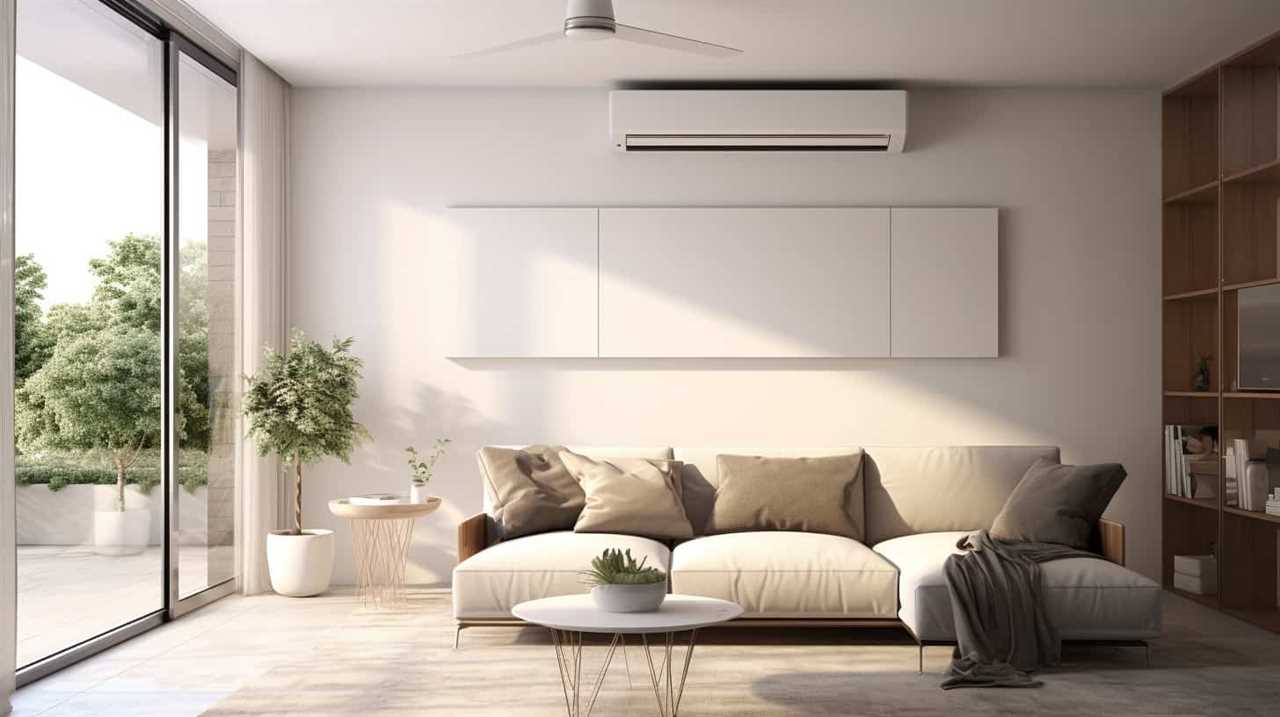
-
Enhancing control strategies: Implementing advanced control algorithms and predictive modeling can optimize the operation of heat pumps, reducing energy waste and maximizing their efficiency.
By addressing these areas, we can ensure that renewable energy heat pumps become even more efficient and contribute significantly to a sustainable future.
In the subsequent section, we’ll explore the latest technological advancements in heat pumps to further improve their performance.
Technological Advancements in Heat Pumps
We can expect significant advancements in the future of renewable energy heat pumps as technology continues to evolve and improve. Technological innovations in heat pumps are driving the development of more efficient and cost-effective systems.
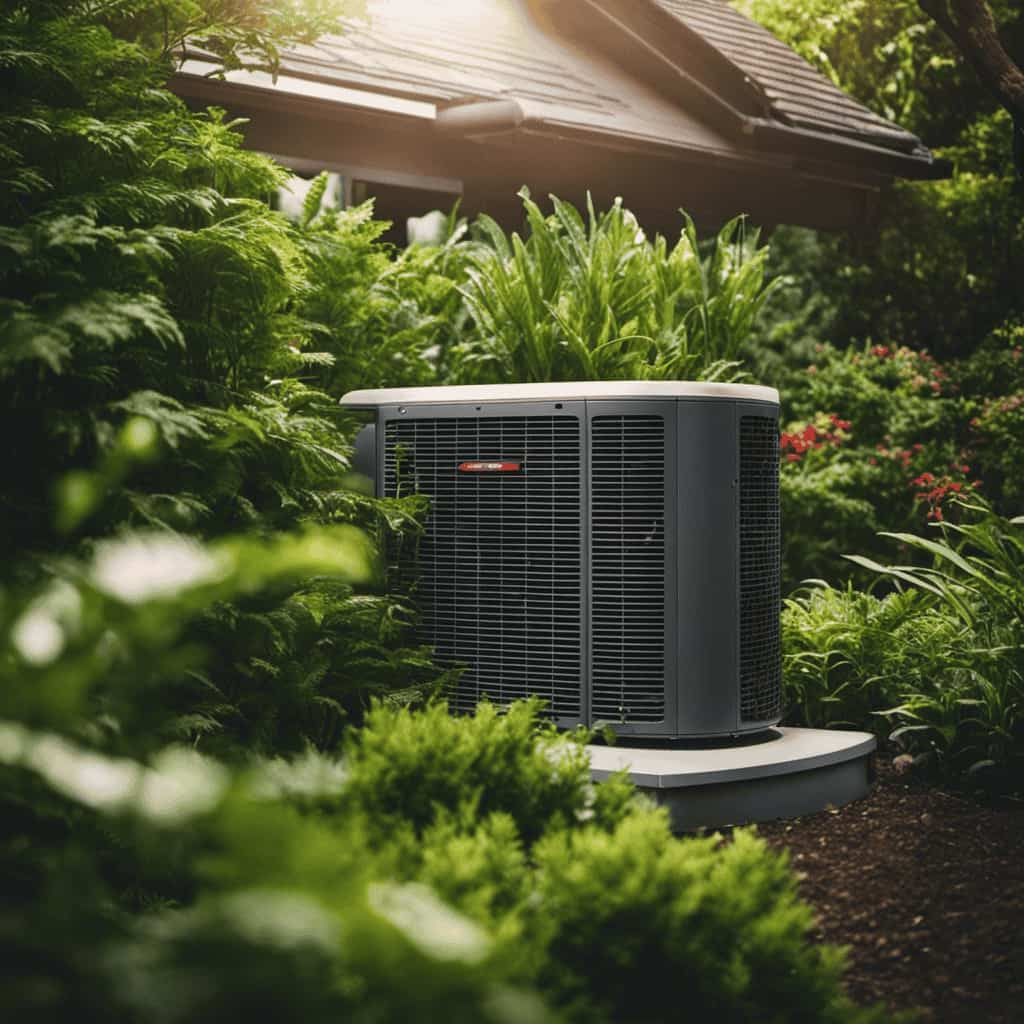
One key area of advancement is the integration of smart technologies, such as advanced controls and sensors, which optimize the performance of heat pumps. These technologies enable heat pumps to adapt to changing conditions and operate at their highest efficiency levels.
Additionally, research is being conducted to enhance the materials used in heat pump components, such as heat exchangers and compressors, to improve their durability and efficiency.
As a result, the future of renewable energy heat pumps holds great promise in terms of increased energy efficiency and reduced operating costs.
These advancements will be discussed in more detail in the following section, which explores the environmental benefits of heat pumps.
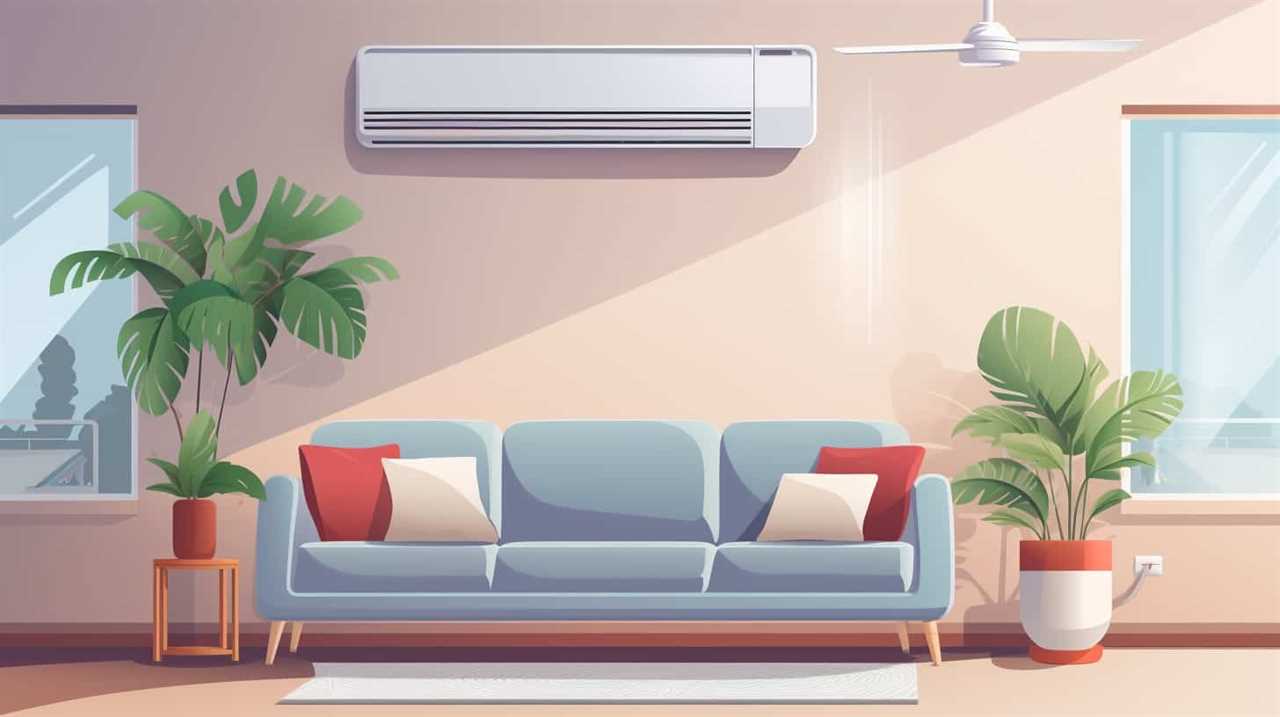
Environmental Benefits of Heat Pumps
Our environment can benefit greatly from renewable energy heat pumps, as they offer a sustainable and efficient alternative to traditional heating and cooling systems. Here are some key environmental benefits of heat pumps:
-
Reduced carbon emissions: Heat pumps operate by extracting heat from the air, ground, or water, and transferring it indoors. This process consumes minimal electricity, resulting in significantly lower greenhouse gas emissions compared to fossil fuel-based systems.
-
Energy efficiency: Heat pumps can provide up to four units of heat for every unit of electricity consumed. This high efficiency translates to lower energy consumption and reduced reliance on non-renewable energy sources.
-
Cost effectiveness: Heat pumps can help homeowners save on energy bills due to their high efficiency and reduced energy consumption. Additionally, government incentives and rebates are often available to encourage the adoption of renewable energy technologies like heat pumps.
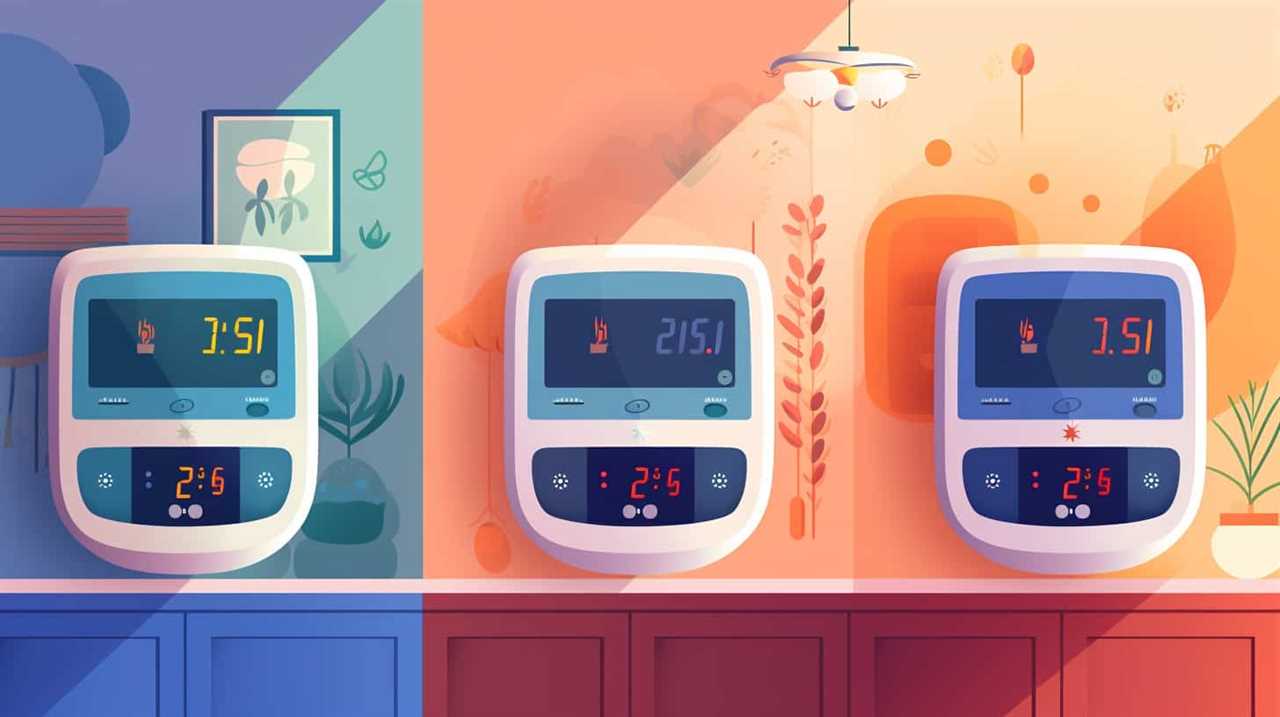
Frequently Asked Questions
What Is the Cost of Installing a Renewable Energy Heat Pump?
The cost of installing a renewable energy heat pump depends on various factors such as the size of the property, existing infrastructure, and the type of heat pump chosen. A cost analysis and thorough assessment of the installation process can provide accurate estimates.
How Long Does It Typically Take to Recoup the Investment of a Renewable Energy Heat Pump?
Typically, it takes a few years to recoup the investment of a renewable energy heat pump. However, the energy savings potential is significant, making it a worthwhile investment in the long run.
Are There Any Government Incentives or Tax Credits Available for Installing a Renewable Energy Heat Pump?
There are government incentives and tax credits available for installing a renewable energy heat pump. These financial benefits can help offset the cost of installation, making it more affordable and encouraging the adoption of this innovative technology.
Can a Renewable Energy Heat Pump Be Used to Cool a Home as Well?
Yes, a renewable energy heat pump can be used to cool a home. It offers efficient cooling while reducing environmental impact. This innovative technology revolutionizes comfort by providing both heating and cooling capabilities.
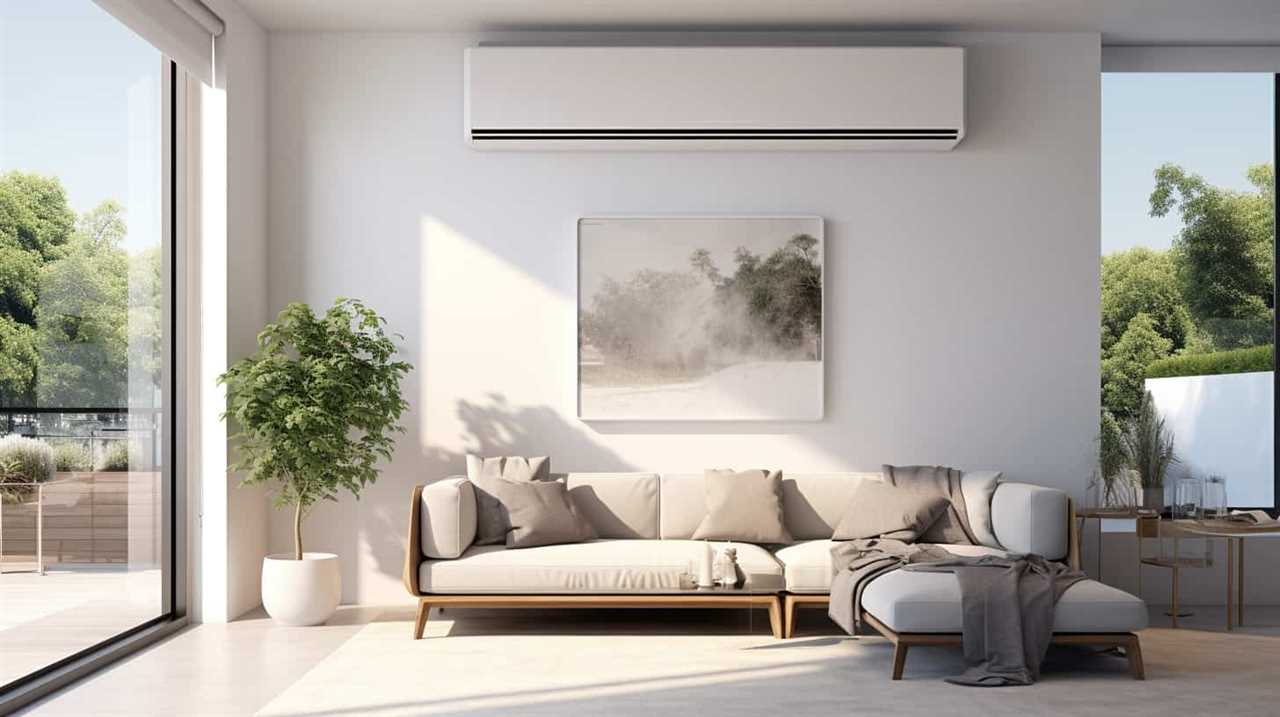
How Does the Efficiency of a Renewable Energy Heat Pump Compare to Traditional Heating Systems?
How does the efficiency of renewable energy heat pumps compare to traditional heating systems? Are they more environmentally friendly? We’ll delve into the efficiency comparison and environmental impact of these innovative heat pumps.
Conclusion
In conclusion, renewable energy heat pumps offer numerous advantages for comfortable and sustainable living. By harnessing the power of renewable energy sources, these innovative devices provide efficient heating and cooling solutions for homes.
Understanding the technology behind heat pumps and considering key factors during installation ensures optimal performance. Regular maintenance is essential for their longevity.
As we look to the future, renewable energy heat pumps will play a crucial role in revolutionizing comfort and reducing our environmental impact.
